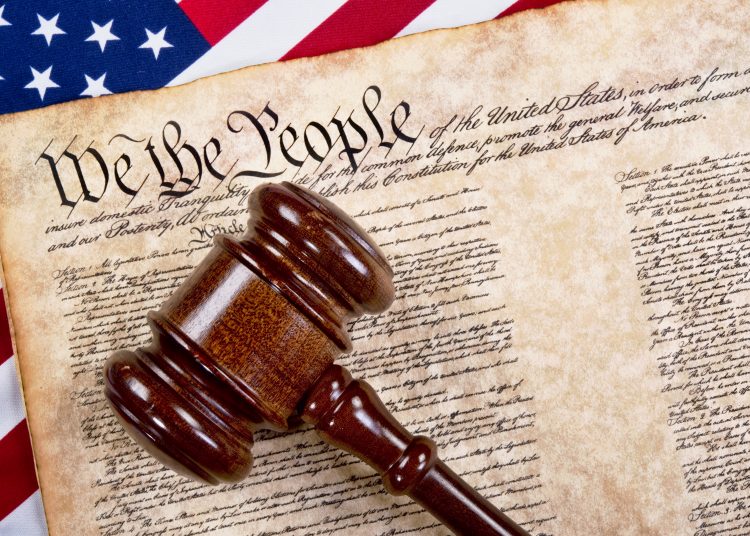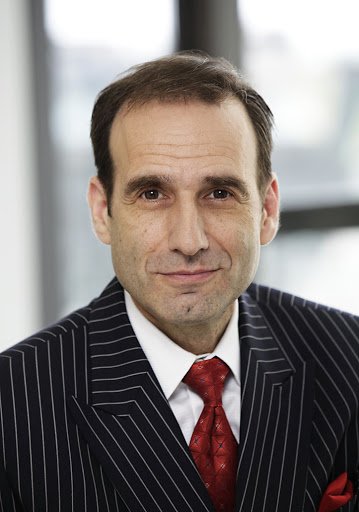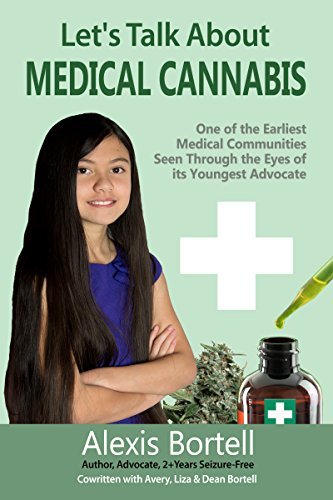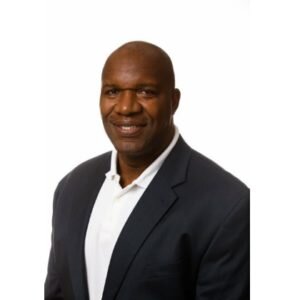Washington v Barr, the biggest cannabis case in recent history to decide the federal legality of the plant and Controlled Substances Act, goes before SCOTUS

xxxxx
“Cannabis is nature’s most effective treating product and we’ve criminalized it,” says attorney Michael Hiller. “The racism and deprivation of liberty and life is awful.”
On Friday October 9, 2020, Hiller and his team will bring one of the country’s most groundbreaking cannabis legalization cases before the Supreme Court. Washington v Barr confronts the destructive racism, inequality, and senseless endangerment of life that the War on Drugs has only reinforced since the 1970s. It is the biggest cannabis case in recent history to decide the plant’s federal legality, and comes as adult-use legislation stands on the ballot for five states this November. (As of October 2020, 38 states and U.S. territories have legalized cannabis use in at least a medical capacity, though it remains federally illegal.)
Washington v. Barr centers on the idea that the Controlled Substances Act (CSA) of 1970, which designates cannabis as a Schedule I drug with “no proven medical uses” – alongside substances such as heroin and mescaline – is unconstitutional and violates the First Amendment rights of medical marijuana patients. First filed in September 2017, the class-action suit features five key plaintiffs: NFL legend and cannabis entrepreneur Marvin Washington; U.S. Army Specialist Jose Belen; 14-year-old legalization advocate Alexis Bortell; 9-year-old Jagger Cotte; and the Cannabis Cultural Association, a nonprofit organization dedicated to creating opportunities for representation and advancement for people of color in the cannabis industry. Particular attention has been given to the fact that Belen, Bortell, and Cotte are medical patients whose cannabis treatments keep them alive, and who are hampered by federal restrictions on cannabis that prevent them from travel by air and other basic rights. They live in fear that their medicine may be taken from them at any point, or that the government may arrest them or their families simply for seeking out the only effective treatment for their chronic conditions.
Additionally, Hiller and his team argue that the current federal laws against cannabis overwhelmingly penalize people of color, as former aides to President Richard Nixon have admitted that the CSA and War on Drugs were established to subjugate Black Americans. The criminalization of cannabis has deepened and intensified an already-entrenched systemic racism to the point that people of color today are three-and-a-half to four times likely to be arrested, prosecuted, and convicted for cannabis-related charges than white Americans, even though white people and people of color use cannabis in equal proportions.
Honeysuckle has followed the developing case since September 2017, when the plaintiffs named the Department of Justice (DOJ), the Drug Enforcement Agency (DEA), and then-United States Attorney General Jeff Sessions as defendants. Much was made at the time of Sessions’s extreme bias toward criminalizing cannabis users, and that while in office he rescinded the Cole Memo, an Obama-era piece of legislation protecting the rights of states that legalized marijuana. In February 2018, Hiller and his team presented the case at the U.S. District Court of the Southern District of New York, where Judge Alvin Hellerstein declared a disappointing ruling that the plaintiffs had “failed to exhaust their administrative remedies” to alter cannabis’s legal status, and recommended that future efforts to decriminalize cannabis should be pursued through legislation rather than through the courts. However, Judge Hellerstein offered some hope when he stated on the record that the use of medical marijuana saved the lives of Bortell and Cotte. Shortly afterward, co-counsel Joseph Bondy, David Holland, and attorney Lauren Rudick of Hiller PC all concurred that an appeal directly to the Second Circuit Court would be the next most effective step. On May 30, 2019, the Second Circuit delivered a written opinion testifying to the “transformative effects of cannabis” based on the evidence presented by Hiller and Co, and urged the DEA to “act promptly” to review the plaintiffs’ claims. After some delays and attempts by the federal government to dismiss the case, by July 2020 the plaintiffs formally filed an appeal to argue the case before the Supreme Court.
Should the Supreme Court decide in favor of the plaintiffs, Washington v Barr would have a far-reaching effect on national cannabis legislation. According to Hiller’s team, it is the greatest opportunity to federally legalize cannabis and eliminate the hardships caused by massive confusion in the law. The case also has tremendous support in the form of amicus briefs from Congressional Representatives Earl Blumenauer (D-OR), Barbara Lee (D-CA), Jamie Raskin (D-MD), and Tulsi Gabbard (D-HI), as well as from advocacy groups including the National Organization for Reform of Marijuana Laws (NORML), the International Cannabis Bar Association, the National Cannabis Industry Association, the Last Prisoner Project, the Minority Cannabis Business Association, and Americans for Safe Access.
Honeysuckle caught up with lead counsel Michael Hiller for a few updates on the case and his thoughts on why this decision has such an impact on American lives now and for generations to come.

HONEYSUCKLE MAGAZINE: Given the DEA’s refusal and stated inability to reschedule or reclassify cannabis as anything below Schedule II, and Congress’s failure to date to remedy this through legislation, the Supreme Court is now our best and only option to end cannabis prohibition. Why has this administrative back-and-forth continued so consistently since the 1970s?
MICHAEL HILLER: According to the DEA and the DC Circuit, there’s this international convention called the 1961 Single Convention Treaty, which prohibits signatories to that treaty from decriminalizing, among other substances, cannabis. The DEA and the DC Circuit have concluded that the only reclassification for cannabis consistent with that treaty would be to reschedule it under Schedule II. That’s a huge problem. But before we get into what problems that creates, let’s now unpack what that means: The way it works in our country is the Constitution is the supreme law of the land, and there’s legislations and treaties underneath that. So what they’re saying is that because the treaty is in existence, it prohibits any executive or agency like the DEA from overruling it. The bottom line is that if the Second Circuit is telling me that the only way my clients can obtain relief is to go to the DEA, when the DEA cannot give the relief I’m asking for, it’s a futile process. Essentially, they have resigned us to a procedure that they know must fail.
The DC Circuit and DEA will not reclassify cannabis as any level below Schedule II. Our clients would not benefit from reclassification under Schedule II. They would suffer, and in fact, America would suffer… What happens if you go to Schedule II? Any medical or other protocol pertaining to cannabis must go through [Federal Drug Administration] FDA guidelines. That means three phases of clinical trials under FDA guidelines. Why are there no trials for Schedule I? Because Schedule I presupposes that you can’t use cannabis for any medical purpose or any purpose whatsoever, for that matter. The minute cannabis is reclassified as Schedule II or below, when it is still on the CSA, every single cannabis company in the country is out of business because they cannot sell any of the medications or substances for purposes not approved by the FDA. Every cannabis physician in the United States is committing a crime the minute that position dispenses or recommends cannabis. Every patient is violating the law—it’s an absolute disaster.
Now, we explained this to the Second Circuit. The DEA takes the position that all they can do is reschedule cannabis, so if we file a petition with the DEA, the most they can give us is to reclassify it as Schedule II—which means if we “win,” each one of our clients would be immediately divested of the opportunity to take medical cannabis. Our corporate plaintiffs wouldn’t be able to engage in any manufacture or distribution.
If we were to “win” before the DEA, that would be a catastrophic loss for not just our clients, but for any medical cannabis patient in the United States and it would resign them to the black market. Because those people do need their medications and they’re going to get them from the black market. The black market has significant risk, so we told the Second Circuit we were not going to go to the DEA… The only way for us to succeed on these issues is to go through the court system.
HONEYSUCKLE: Why is it so important to go through the court system, and why has the DEA refused to acknowledge cannabis’s proven medical uses?
HILLER: I believe that the Second Circuit [assumed] that the DEA would acknowledge what the rest of the country already knows to be [true]. To be on Schedule I, the substance must, among other things, have no accepted medical use in the United States and is so dangerous it cannot be used unless under strict, legal supervision. Those are two out of the three requirements. 70% of American jurisdictions permit the use of cannabis in the treatment of patients. How could anyone legitimately dispute that it has safe and effective accepted medical use?
I genuinely believe that the Second Circuit thought that the DEA would declassify cannabis altogether. But we’ve since learned the DEA won’t do that, can’t do that, because of the decisions they have been making since 1977 when they first ruled the single convention treaty [prohibited] them from descheduling cannabis…
To me, what the DEA could have been doing, and should be doing, is disregard the single convention treaty. But they won’t. And because they won’t, we have no choice but to go to court—some have suggested that we should let this go through the legislative process and let Congress make the change. I think it’s really important that your readers understand why that is simply not an option. The courts are the last defense against Congressional overreach. The courts are the guardians of our constitutional rights. Therefore, the notion that we should be looking to Congress to correct a wrong that they previously committed by classifying cannabis under Schedule I and that the courts punting on that issue, is antithetical to the framework of our constitution. The courts are supposed to be the ones to say “Hey, Congress, you have overstepped.” So, the first and most important aspect of this, is that the courts should not be abdicating their responsibility to protect the constitutional rights of those patients who desperately need cannabis to live.
The second most important thing is that even if the courts didn’t have that role, and they clearly do, there is no way Congress is going to fix this without judicial intervention. And let me tell you why. Today, 93% of Americans support legalized cannabis for medical purposes… You can’t get 93% of Americans to agree on anything, and yet 93% of Americans support medical cannabis—still Congress can’t pass the legislation. That tells you that the legislative process on this issue does not work and will not work. Because when you have that many Americans agreeing on something, and you still can’t Congress to pass the law, that means there is some sort of interruption of legislation that precludes completion.
HONEYSUCKLE: What roles do other actors play in this situation?
HILLER: In this case, Big Pharma is not going to let Congress deschedule cannabis. Why? Because [Big Pharma companies] need to keep America on [their] medications, not on cannabis. So, they are pumping millions of dollars into the coffers of the members of Congress to prevent them from voting their consciences… Mitch McConnell will not allow [this issue] to come to a vote. The House of Representatives passed substantial regulatory changes and legislative changes in the last session, but it doesn’t matter because Mitch McConnell won’t let it happen. So that’s one problem. The other problem is the tobacco industry. They don’t want people smoking joints and vaping, or taking edibles–they want people smoking their product; cigarettes.
Now, maybe someday, Big Pharma and the tobacco industry will change their perspectives. But my instinct is, [that will only happen] when they have done the necessary legwork to take from the “Mom and Pop” cannabis industry, that which rightfully belongs to them, namely: the business. Someday, Big Pharma and Big Tobacco may allow cannabis to be marketed and distributed through the “Mom and Pop” organizations and the small businesses that currently distribute cannabis in the United States. But until that happens, they won’t let Congress [pass the legislature]. And my clients can’t wait that long. Alexis Bortell is 14 years old. She has to get her health insurance renewed this year when she turns 15. She can’t go on a military base because she can’t take her medical cannabis with her. I have clients who… need their relief.

HONEYSUCKLE: Why have cannabis patients become second-class citizens in the United States?
HILLER: They can’t do the things that most people can do. For example, anyone who needs to bring their medical cannabis with them cannot go on federal land, which represents 28% of the United States today. So Alexis Bortell has never been to a national park. She was invited in 2017 to speak to members of Congress. She couldn’t go. She wants to go to a high school near her house. Instead, she has to travel 90 minutes because the schools closest to her won’t accept her as a student because they will not allow medical cannabis on the campuses. So people like Alexis Bortell are literally second-class citizens. They don’t enjoy the same rights that you and I do. Why should they have to wait? For kids like Alexis–why should they be subjected to the sense of otherness that plagues young boys and girls every day?
When Alexis’s class was invited to go to Washington D.C. in April 2020, every kid in her class was able to sign up for that trip except her. She’s constantly being placed in a position of being “other.” I don’t know if you ever met Alexis, but she’s one of the most impressive young women I’ve ever met–she’s amazing and she should not have to go through that. She should be able to live her life and grow up the same way you did. They should all have the right to grow up in a society that accepts them for who they are, not the medication they take…
The district court also said something else which was really strange: there is no fundamental constitutional right to treat with a medication that can save your life. Why I find that so bizarre is that in a case called Cruzan v Director, Missouri Department of Health, the Supreme Court actually ruled that you have a fundamental constitutional right to end your life with medication, if you want to. So what the district court is apparently saying is, “You have a constitutional right to end your life, but not to perpetuate it; not to extend it.” That to me makes absolutely no sense whatsoever.
HONEYSUCKLE: In your view, is criminalizing medical cannabis an infringement of the Due Process Clause of the Fifth Amendment?
HILLER: Under the Due Process Clause of the Fifth Amendment, the federal government cannot deprive you of life, liberty, or property without due process. Over the years, the terms Life and Liberty have been understood in the broader context. It’s not just procedural due process… The courts have recognized that the concepts of liberty and life are more transcendent. They recognize that when, for example, the federal government prohibits a person from treating with a life-saving medication, the federal government is literally depriving you of your life without due process. For example, in the same way people who treat [with] medical cannabis aren’t allowed to go into federal land or get on a plane or go on federal rail, because that’s federally regulated. Alexis Bortell can’t go to her parents’ military base because that’s federally regulated, or she can’t go to school because the school accepts federal funds and doesn’t want to lose their sponsorship. That is a deprivation of their liberty… the right to travel, the right to [medically] treat, the right to get an education. Liberty’s much more expansive than just being restrained. It can also mean the restraints of not being able to go to school. You have a fundamental right to attend school, because the courts have recognized that it is fundamentally necessary to be able to earn a living wage, and to have a career, and eventually to own property. So, if you can’t go to school because you can’t treat with medication that the federal government irrationally determines should be illegal, they are depriving individuals of their liberty interests without the process of a trial.
HONEYSUCKLE: How do you think the operational anomaly between federal and state regulators has contributed to our national confusion surrounding the cannabis issue?
HILLER: [The ambiguity of state and federal dichotomy] is a big issue and one that’s very relevant to our petition to the Supreme Court. If you go to the U.S. Supreme Court, it’s not enough to show that you’re right. SCOTUS first and foremost wants to determine if there’s ambiguity in the law…
Under federal law, cannabis is illegal; under these 38 state and territorial jurisdictions it’s legal. But what about, for example, colleges? At the University of Maryland, there’s a graduate program [in] cannabis science… In medical schools, doctors are taught how to treat patients with cannabis. Lawyers can take cannabis law in school. Lawyers like myself can advise cannabis businesses on how to generate more business and navigate the regulatory landscape. We have those facts, and yet every medical school that teaches a doctor how to [treat] patients with cannabis is technically aiding and abetting the commission of a federal crime. Every university that teaches cannabis undergraduate or graduate school courses is teaching people how to commit crimes. There’s a university in [Oakland, California], Oaksterdam—an entire university dedicated to teaching people how to (according to the federal government) commit a crime. And then of course there’s the fact that the United States has its own domestic and international cannabis patents, and has been licensing those patents all over the world. The United States government has something called the Investigational New Drug Program, pursuant to which it subsidizes a growth operation in the University of Mississippi and distributes up to 9 pounds of joints per year to cannabis patients all over the country to see whether or not it works—since 1976! The Department of Treasury has… a guidance which tells banks and other lending institutions how to do business with cannabis companies. They are advising banks and lending institutions how to commit crimes, because when they’re giving money to a cannabis company, they are aiding and abetting the commission of a federal crime.
Now, how can we as Americans know what is legal and what is not? It literally is an ungodly mess of conflicting laws and regulations that seem to point in different directions… We need the U.S. Supreme Court to step into the breach and provide clarity where the federal government has been unable to do so.

turned cannabis entrepreneur
(C) Marvin Washington
HONEYSUCKLE: How does this case relate to larger movements we are seeing against systemic racism – i.e., Black Lives Matter, anti-police brutality demonstrations, social justice movements against institutional oppression, and others?
HILLER: This is one of the most important aspects of this fight for me. I see the criminalization of cannabis as part of a larger struggle by African-Americans and persons of color against an establishment that is rooted in racism. The criminalization of cannabis in 1970 was specifically created for the purpose of subjugating persons of color and those who were against the Vietnam War… [two top members] from the Nixon Administration, John Ehrlichman and H.R. Haldeman, admitted it… Nixon thought that persons of color were his enemies but he couldn’t make it illegal to be Black. So what he did was he tried to find something that he thought that Black Americans use and criminalize it—and that’s why cannabis is illegal today… There is overwhelming evidence of this. It’s really undeniable. As disgusting as it is going to sound, Nixon was remarkably effective.
Cannabis has become the pretext to subjugate persons of color. The consequences of America’s racist drug war against Black America have been profound and deeply tragic. Once a person is convicted of a drug crime, a drug felony, they can’t vote in most states. They can’t get a lot of jobs. They can’t sit on a jury. They can’t file applications for student loans. It is a life-wreaking experience…
We are seeing today in 2020 the same deeply-rooted racism that was responsible for the enactment of the Controlled Substances Act of 1970. 50 years later, we’re still fighting the same fight. I want to do everything I can to take this part of the arsenal that has been used against Black Americans and throw out the trash. I’m not going to be able to eliminate racism through this lawsuit, but I can take one of the methods, one the tools, that the federal government has used historically (and even to this day) and take it away from them. If I can I will.
There is a tie-in between what I just described to you and the Constitution. Under the Fourteenth Amendment, every American is entitled to equal protection under the law. The Fourteenth Amendment as written applies to the states—but there’s this old case called Bolling v Sharpe which says that the Equal Protection Clause of the Fourteenth Amendment is understood to be an outgrowth of the protections afforded by the Due Process Clause of the Fifth Amendment. What the courts have said is, “The federal government is obligated to provide equal protection. The federal government cannot deprive people of equal protection.” That is the law.
Every time a person of color is treated differently under the Controlled Substances Act, and that’s every day, it constitutes a violation of the Equal Protection Clause. In my view, it violates the Civil Rights Act as well. So, if we can declassify cannabis and remove it from the schedule by obtaining a declaration that it is unconstitutional, that would essentially void the law—and if it’s voided, all of those criminal convictions, I hope, can be vacated. All of those lives that have been destroyed can go on a pathway towards restoration. That, to me, is so important to what we’re doing; it’s one of the reasons why when we took this case on pro bono.
What kind of society would we have if we could take this tool out of their arsenal? It wouldn’t resolve all racism… Racism is so important to those in charge that they’re willing to fire on American citizens to perpetuate it. We have to take the wall of racism down brick by brick. This [case] is one brick.
—
Stay tuned for updates on the case as it goes to the Supreme Court and follow Hiller PC (@hillerpc) on Instagram for more details.
Source : honeysuccklelemag.com
